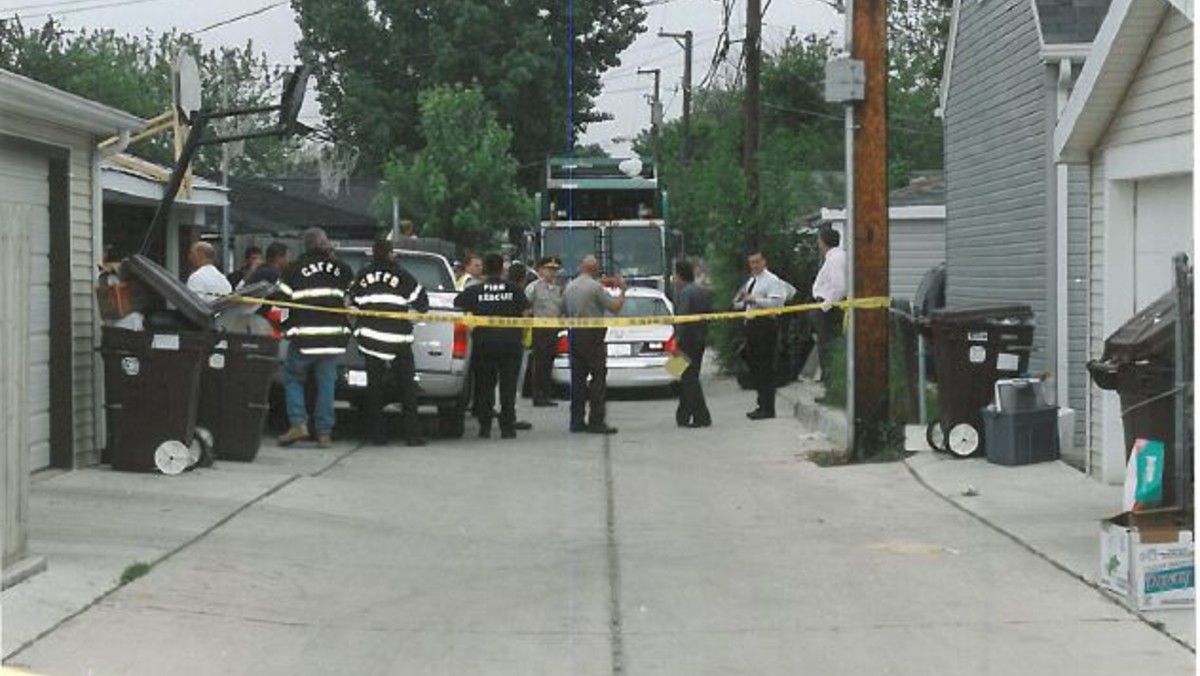A total eclipse captivated millions across the United States, and lucky residents in southern Illinois and central Indiana were treated to a once-in-a-lifetime spectacle.
Elsewhere, a partial eclipse was visible over much of the United States, with 94% sun coverage in the Chicago area.
Here's a recap of how the day unfolded, and the latest news you can use.
3:55 p.m.: What should I do with my eclipse glasses? Here's where you can donate them
Millions were treated to spectacular views on Monday afternoon as a solar eclipse sliced a diagonal line across North America, thrusting communities into darkness for a brief period of time.
The once-in-a-lifetime spectacle prompted scores of onlookers to travel toward the path of totality but also amazed those that experienced a partial eclipse, as was the case in the Chicago area.
Now that the astronomical event is in the books, you might be wondering what to do with those special eclipse glasses.
Local
It turns out, you have a few options.
Glasses are being collected at a number of Chicago-area locations for the non-profit Astronomers Without Borders, which has collected used glasses for distribution since 2018. The program gives people in other parts of the world, who might not have the opportunity to safely view an eclipse otherwise, to do so.
Feeling out of the loop? We'll catch you up on the Chicago news you need to know. Sign up for the weekly Chicago Catch-Up newsletter here.
You also have other options, and you can find more details here.
3:20 p.m.: Here's How Monday's Eclipse Looked in Carbondale
2:45 p.m.: Pete Sack Is All of Us as He Reacts to Eclipse
NBC 5 Storm Team Meteorologist Pete Sack didn't hide his emotions as the eclipse reached totality on Monday afternoon.
2:33 p.m.: When Will Illinois' Next Total Eclipse Occur?
If Illinois residents missed Monday's eclipse, they’ll have to wait a really, really long time before another total eclipse will be visible in the state.
How long, exactly? Try more than 75 years.
That’s right. According to NASA, the next total solar eclipse that will be visible in Illinois won’t occur until Sept. 14, 2099. That eclipse will be visible in northeastern Illinois, including the city of Chicago, as well as parts of Wisconsin, including Madison, Milwaukee and Kenosha.
2:24 p.m.: Symptoms of eye damage from looking at a solar eclipse might not appear for hours
If you don't have the proper eye protection, looking at the solar eclipse can be damaging and you likely won't feel the pain as it's happening.
According to the Adler Planetarium, viewing the solar eclipse without proper eyewear can result in irreversible eye damage within seconds, and your eyes lack the nerve endings to register pain as it's occurring.
2:21 p.m.: Satellite Map Shows Totality
Ever wondered what it looks like when a solar eclipse takes place? The National Weather Service shared an incredible image of the moon's shadow moving across the United States.
2:16 p.m.: The Moment of Totality From Dallas
1:44 p.m.: How to Take Photos of the Eclipse
1:24 p.m.: Eclipse Well Underway, Half an Hour Until Totality
12:59 p.m.: Struck Out on Eclipse Glasses? Here's a Handy Tip
If you weren't able to get a pair of approved eclipse glasses, you can still get creative to see the moon's impact on the sun during the partial eclipse.
If you’ve got a large cardboard box and a few other supplies, you might still be able to view Monday afternoon’s total solar eclipse safely, and here's information on how to make it.
12:11 p.m.: Why Viewing a Partial Eclipse With the Naked Eye is So Dangerous
While it may seem tempting to look up at the total solar eclipse as it is happening, doing so without the proper tools can be dangerous for your eyes.
According to the Adler Planetarium, viewing the solar eclipse without proper eyewear can result in irreversible eye damage within seconds, and as your eyes lack the nerve endings to register pain as it's occurring.
What's more, your pupils will be more dilated as the eclipse occurs, allowing more harmful rays to enter your eyes than on a normal sunny day.
Regular sunglasses, even very dark ones, are not safe to view the eclipse.
What Time Does the Eclipse Begin?
If you’re curious when the eclipse will take place, we’ve got you covered with this handy guide to eclipse start and end times in Illinois.
Totality will begin just before 2 p.m. and will last anywhere from three to four minutes in the southern portions of the state, according to NASA officials.
Some Solar Eclipse Glasses Recalled Ahead of Monday
If you purchased your solar eclipse glasses via Amazon or select other retailers, you may want to check to make sure they are actually safe for Monday’s eclipse.
Amazon and other companies have issued alerts about specific brands, including “Bikini Solar Eclipse Glasses AAS Approved 2024,” and asked users not to try to view the eclipse through those glasses.
You can find more information on the NBC Chicago website and app.
Federal Highway Administration Offers Eclipse Driving Tips
Driving elsewhere in Illinois for Monday’s eclipse? The FHA has tips for you to stay safe during the eclipse.
Among those is to turn on headlights during totality and even during partial eclipses to maximize visibility. Avoiding travel during the eclipse is preferred, but those who are driving are urged not to stop on highways or park on shoulders during the event.
Interactive Map Shows Eclipse’s Path
Curious if your community is in the area of totality for the eclipse? NBC has provided a map showing the eclipse’s path across the United States, and when totality will occur in those locations fortunate enough to be in that area.
Chicago’s Eclipse Forecast: ‘Ideal Conditions’ Expected
Chicago is not in the path of totality for Monday’s solar eclipse, but with nearly 95% coverage of the sun, those hoping to view the partial eclipse through specialized glasses or by using a pinhole projector or other device will have good news.
According to forecast models, skies should be mostly clear during the eclipse in the Chicago area, but the temperatures will also be downright summerlike, with highs soaring into the 70s.
Some places in southern Illinois and Indiana are indeed in the area of totality, but the forecast is a bit more questionable in those locations, with some high clouds possible during the afternoon hours.



